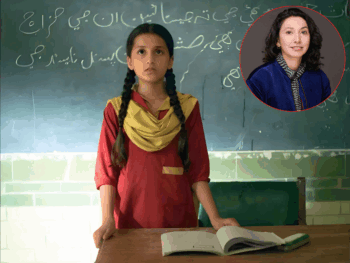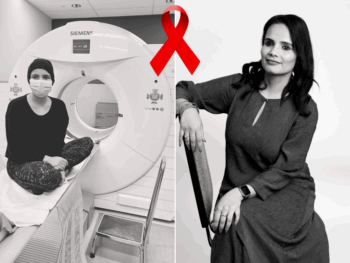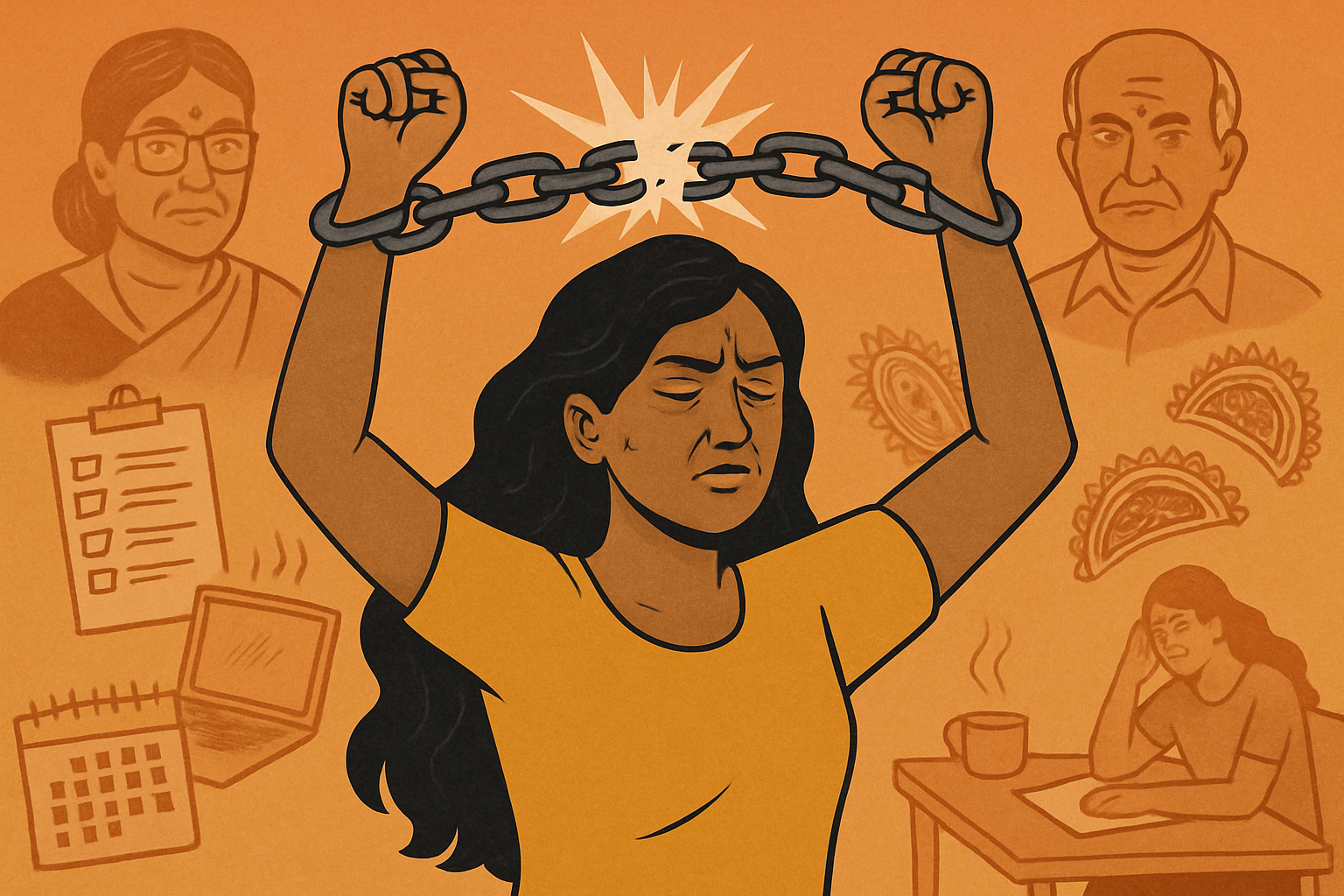
With the importance of family and community being the backbone of South Asian culture, infertility issues seem to get swept under the rug. We take a look at why and discuss the need to stop the silence.
My grandmother, the sweet woman that she is, has been nagging me to get pregnant for six months now (maybe longer). It didn’t occur to me how significant this was for her until she, very seriously, told my mom to take me to the doctor. According to my grandmother, if I haven’t had a child already, there must be something wrong with me and I should see a doctor right away. I had just gone from being seen as her grandchild to being seen as someone with a serious problem, a sort of defect, and it didn’t feel good. At that moment, I wondered how many other women were dealing with this issue, the emotional toll it can take, and if there really was an issue of infertility, what were my options? It’s not a term people like to throw around, much less talk about, especially in the South Asian community. If unfamiliar with the issue, the word can strike up anxiety, panic and even fear. With this in mind, I spoke with Dr. Amos Madanes, a board certified reproductive endocrinologist and received some insight from a couple (who will remain anonymous and referred to as Mr. and/or Mrs. X) dealing with infertility.
Infertility is, as defined by the American Academy of Family Physicians, the inability to achieve pregnancy after one year (for women under 35) or six months (for women over 35) of regular, unprotected intercourse. With infertility rates rising to roughly 16 per cent or every 1 in 6 couples in Canada and rates as high as 10 per cent of a 1.3 billion general population in India, physicians and specialists are racing to find out more about these alarming numbers. According to Dr. Madanes, some of the main causes of infertility are ovulatory dysfunction, uterine abnormalities, tubal obstructions or male factors, including low sperm count or low motility in sperm, and some unfortunately are unexplained cases of infertility; however, one of the most overseen, yet common causes of infertility is the simple case of age.
Infertility is mostly seen in ages 35 and above, but there is no clear data connected to a specific age range that is affected. In today’s society, age-related infertility is becoming more frequent for a variety of reasons. Women are focusing more on education and are driven to become successful in their careers before thinking about starting a family. Being South Asian, Mrs. X, who is 35 and has been diagnosed with unexplained infertility, is familiar with this paradigm, stating that, “like many Desi parents, [they] emphasized education and careers throughout my childhood. So, for many years that was my primary focus, over my love life and over trying to start a family.”
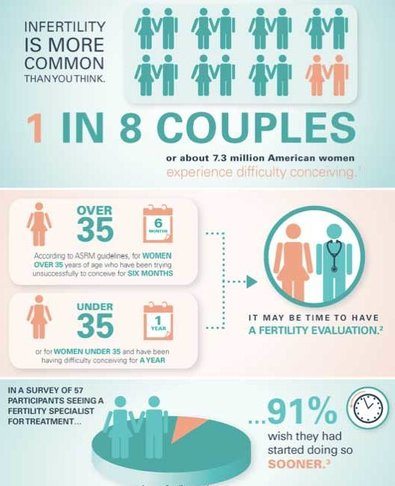
Photo Credit: www.consumerdigest.com
Even though couples may go through infertility, it doesn’t mean they will never have children. If you cannot conceive naturally, Dr. Madanes recommends starting off by seeing a fertility specialist over your family physician as time is of the essence and irreplaceable. Educating oneself about the issue is the key. A fertility specialist can start testing right away for regular ovulation, sperm counts and any abnormalities, in turn providing options in order to help conceive. Some treatment options are timed intercourse, fertility pills (most affective, cost friendly option), intrauterine insemination (IUI), hormone therapy or in-vitro fertilization (IVF). Since every case of infertility is different, treatment options always vary in order to fit the unique situation. As Mr. and Mrs. X know how stressful and emotional this time can be, they offer advice on trying to adopt healthy habits in order to ensure the best results: a good diet, working out regularly and avoiding harmful stimulants like smoking and high amounts of alcohol. It’s also imperative to remain yourself. Mrs. X also admits that “When you're undergoing treatment there are so many changes to your day to day life. It’s infuriating and exhausting, [but] knowing that I’m not alone has helped me find solace.”
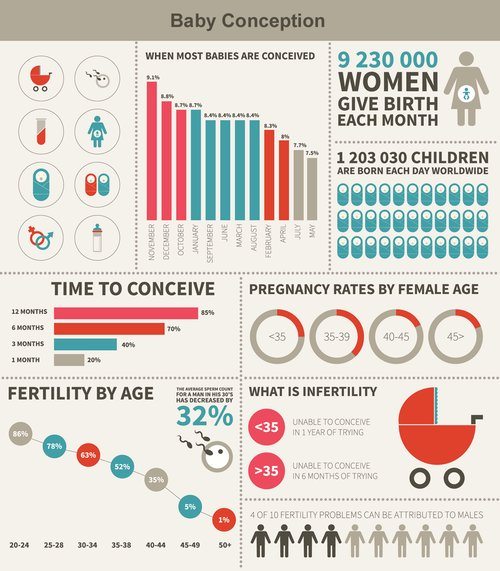
Photo Credit: www.medicalnewstoday.com
Though it may not be the case with other South Asian women who may have this problem, Mrs. X has been lucky with her understanding family. Being raised in a family where both parents are physicians, Mrs. X was able to open up and receive the support she needed in order to get through this emotional time. She is not sure what any other Desi community would be like with the issue of infertility since all of her parents' friends are doctors and have a very clinical or medical perspective as opposed to one that is more religiously oriented. “South Asian culture places a strong emphasis on community. If you don't have kids, it seems like you're not perpetuating the community. I find that by being open I'm less stressed. I think infertility is a personal thing and couples choose to face that challenge differently.”
In order to help cope, Dr. Madanes stresses the importance of seeing a psychologist or joining support groups during this time as the issue of infertility can often lead to tension between couples. It is of the utmost importance to have regular conversation, by simplifying the situation and using regular language instead of such heavy medical terminology. After all, even though these are patients, these are people “working together to achieve a goal.” Mrs. X feels as though women in general don’t seem to talk about infertility as much as they should. Being South Asian, she feels that “we suffer in silence and the vast majority of the emotional burden of dealing with infertility does seem to fall on women.”
Infertility can seem like an unspoken issue, but therein lays the problem. In a survey from the US Center for Disease Control, from 2006 to 2010, more than 1.5 million U.S. women, or 6 per cent of the married population reported infertility, and nearly 7 million have used infertility services at some point. Mrs. X strives to bring more light to this pressing issue, sharing “I don't think that South Asian women are very open about their infertility struggles. I've only heard about it through the grapevine, [but] you are not alone. Lots of people struggle with infertility in varying degrees. You’re not broken and you did not do anything wrong. You are your best advocate.”
After hearing Mrs. X’s story, I will admit that I became worried; worried for myself and the other countless women who find themselves in this situation with no shoulder to lean on. The word infertility brought upon anxiety, panic and, yes, a little fear in me. The most important feeling it brought upon though is empowerment. I know that if the time ever came, I have options. I won’t be alone and I now have some solid answers for my dear old grandmother.
For more information on infertility, contact your doctor or visit:
US: The Center for Disease Control
India: Infertility India
UK: Human Fertilisation & Embryology Authority
Canada: Infertility Awareness Association of Canada
Main Image Photo Credit: www.mini-kin.com
Shilpa Sehgal-Rajput
Author
Shilpa Sehgal-Rajput is a freelance writer based in Chicago. Reminiscing about her passion for writing during her college days, she has made her way back from the corporate world, armed with a lace pen. When she’s not working on humorous short stories and epic novels, she’s living out her se...
COMMENTS
YOU MAY ALSO LIKE
Newsletter Sign Up
Subscribe to our FREE newsletter for all of the latest news, articles, and videos delivered directly to your inbox each day!
































































